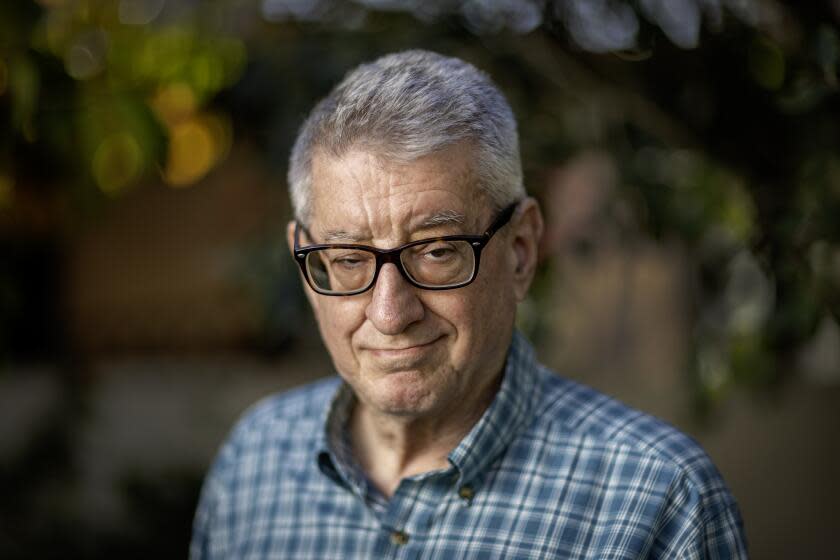Jewish USC professor, who was barred from campus over Hamas comments, allowed to return

- Oops!Something went wrong.Please try again later.
USC professor John Strauss is allowed to return to campus as the university continues its investigation into his comments about Hamas during a student protest, according to his lawyer.
Students captured his Nov. 9 remarks on video and the episode went viral on the internet. More than 7,000 people signed an online petition calling for USC to terminate Strauss, while nearly 21,000 signed onto an opposing petition to reinstate the Jewish professor.
The incident and viral uproar that followed became a flash point for the clash between supporters of Israel and Palestinians in American academia. The backlash underscores the challenge universities face across the country as they try to referee altercations over the Israel-Hamas war on campus, raising questions about limitations on free speech and efforts to provide a safe environment.
In an updated statement, USC said, "all of the restrictions previously placed on Professor Strauss have now been lifted."
Strauss, a professor of economics, came across students staging a walkout and protest calling for a cease-fire in the Gaza Strip. The students held a memorial for Palestinians killed in the Israel-Hamas war. He alleged that he heard slogans, such as "destroy Israel," which students later disputed.
In an exchange with the protesters, Strauss said they were ignorant, before going a step further.
“Hamas are murderers," the 72-year-old professor said to the students. "That’s all they are. Every one should be killed, and I hope they all are killed.”
The video, versions of which were manipulated online to remove the reference to Hamas and instead suggested that he hoped all Palestinians would be killed, prompted a swift response from the university.
Strauss said he was told that he was placed on paid administrative leave, barred from campus and no longer allowed to teach his undergraduate classes this semester. He was allowed to continue to teach graduate-level students through Zoom classes. Several days later, the university walked back some of the restrictions and he was also allowed to resume undergraduate classes online.
His attorney, Samantha Harris, said USC told Strauss this week that he would be allowed to return to campus on Saturday.
Classes at USC concluded for the semester Friday. Final exams begin next week and run until winter break, which starts Dec. 14.
"This is a step in the right direction," Harris said in a statement. "But he is still under investigation and facing potential discipline for his speech, which is both a violation of USC’s own promises of free speech and an outrageous, viewpoint-discriminatory double standard in terms of how USC enforces its policies."
Staff writer Matt Hamilton contributed to this report.
This story originally appeared in Los Angeles Times.

